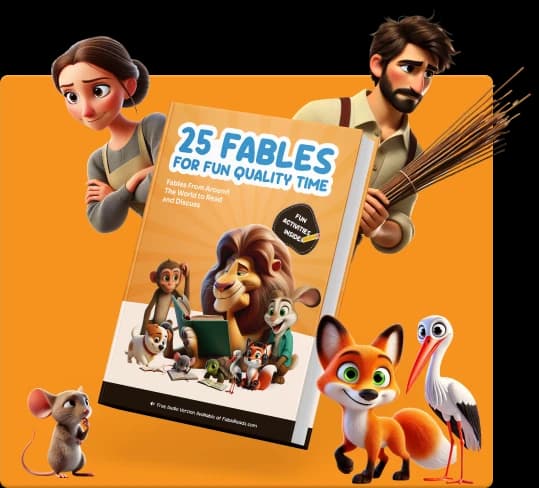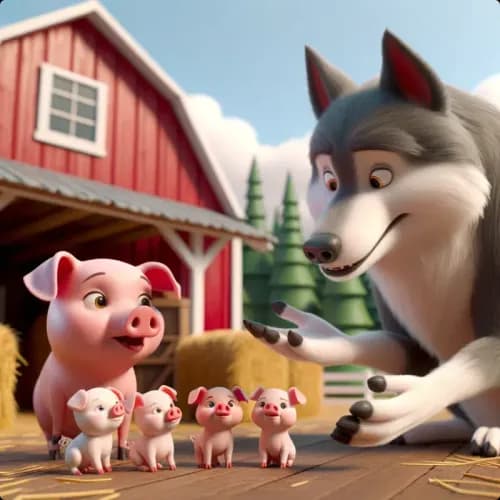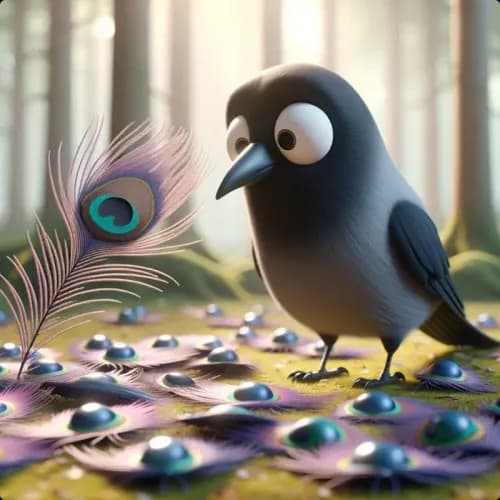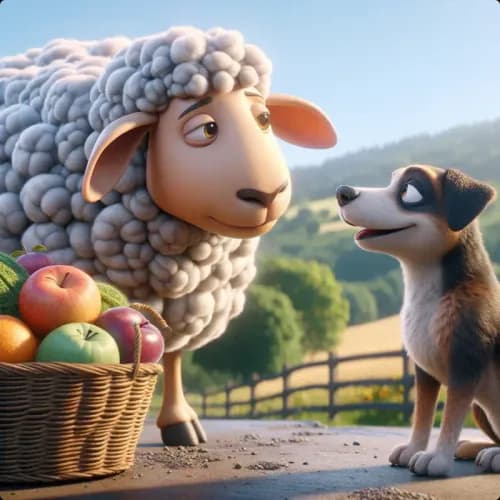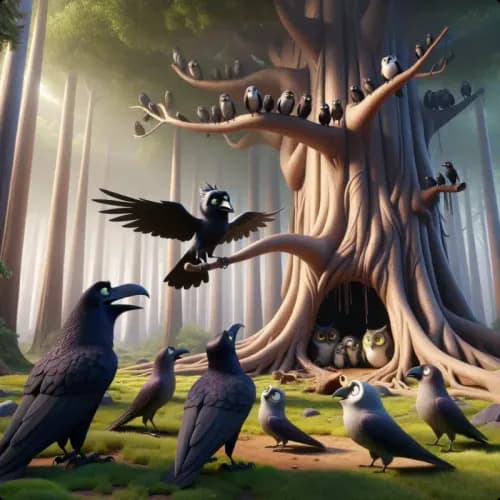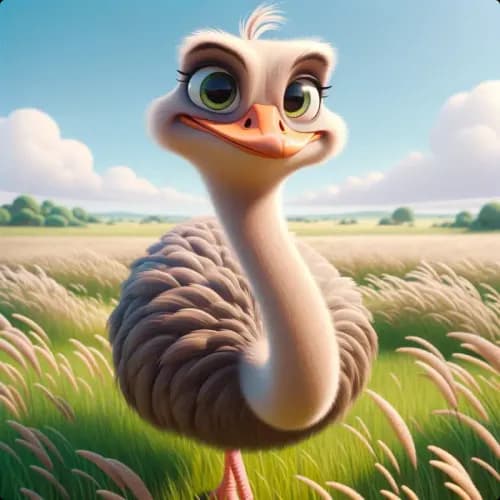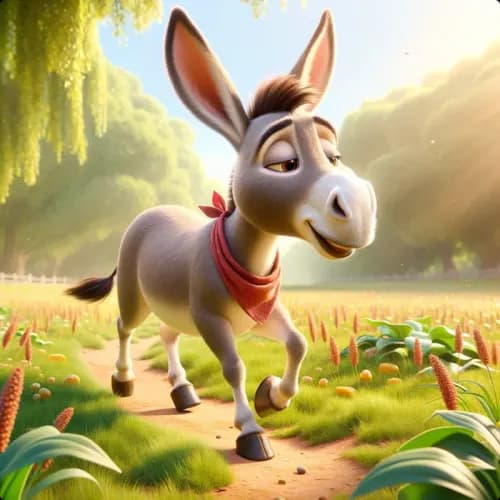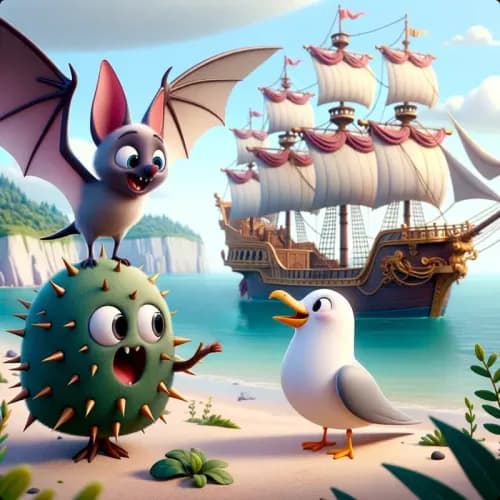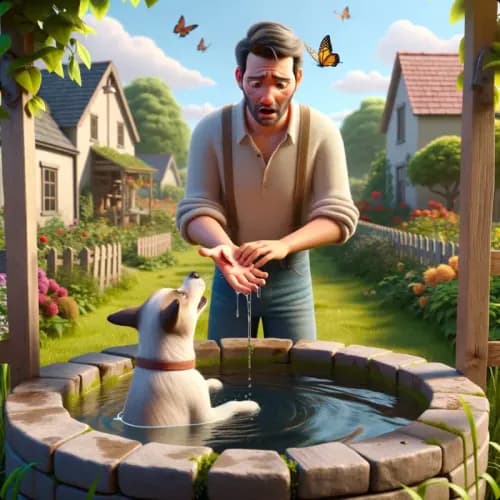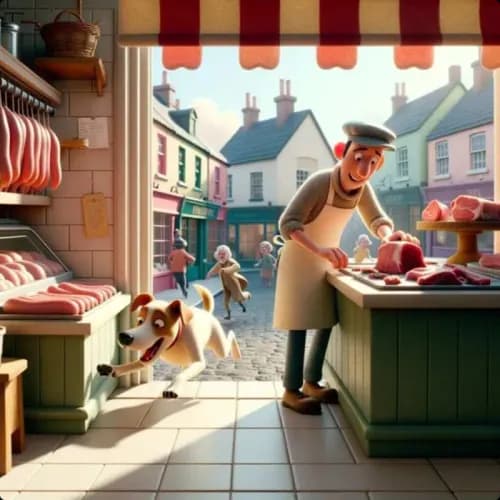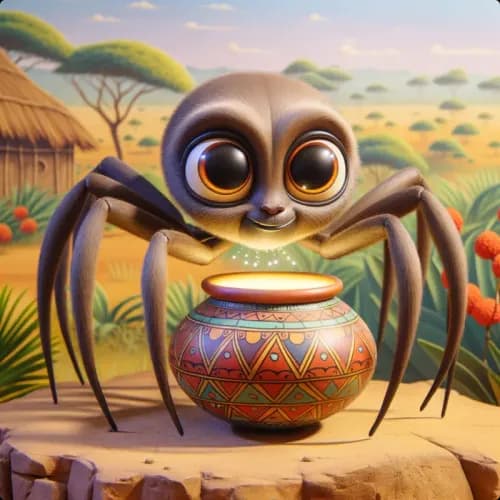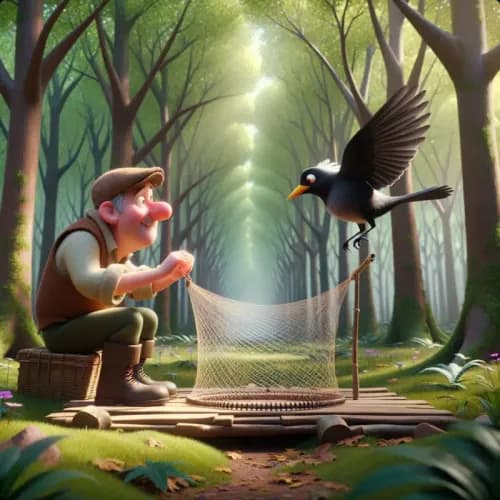Traditional | China
The Old Man Who Lost His Horse
An old man faces good and bad events calmly. Could what looks like bad luck actually bring something good, or the other way around?
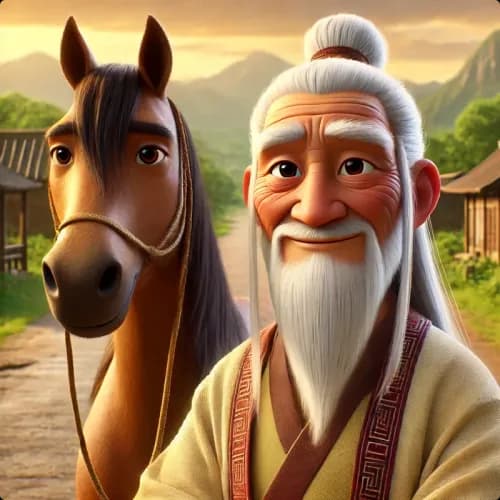
Once, there was an old man who lived with his son in a quiet village. Together, they raised horses and enjoyed riding them through the countryside. One day, one of their finest horses broke free and ran away into a distant land. The neighbors, hearing about this, rushed to the old man’s house to offer their sympathy.
"Oh, what bad luck! Losing such a valuable horse!" they exclaimed. But the old man didn’t seem sad at all. He smiled softly and said, “Who knows? Maybe losing the horse isn’t such bad luck after all.”
The villagers were puzzled by his words but left him alone.
Weeks passed, and to everyone’s surprise, the horse returned. Not only that, but it brought along a strong and beautiful wild horse. The neighbors, excited by this stroke of good fortune, hurried back to congratulate the old man.
"You’re so lucky! Now you have two fine horses!" they cheered. But the old man didn’t look as happy as they expected. Instead, he replied, “Who knows? This new horse may not bring such good fortune.”
The villagers were even more confused but said nothing.
The old man’s son loved to ride horses, and he was eager to try out the new one. One day, he rode it through the fields. But suddenly, the wild horse was startled and threw him off its back. The young man fell hard and broke his leg. Again, the neighbors came to the old man’s house, this time with words of comfort.
"We’re so sorry about your son’s injury. What a terrible misfortune!" they said. But the old man simply shrugged and replied, “Who knows? Perhaps it’s not as bad as it seems.”
The villagers shook their heads in disbelief. They thought the old man was too sad to understand what had happened.
Not long after, a war broke out, and the emperor’s soldiers came to the village to take all the young men to fight. Many young men were forced to go, but the old man’s son stayed behind because of his injured leg. Sadly, many of the young men who went to war did not return.
The neighbors realized that the old man’s words were wise. What seemed like bad luck had saved his son’s life.
Buy a Book and Help Bring Fables to the World
Enjoy 25 selected fables for life, in print. Every purchase supports free stories for children, parents, and teachers worldwide at fablereads.com
